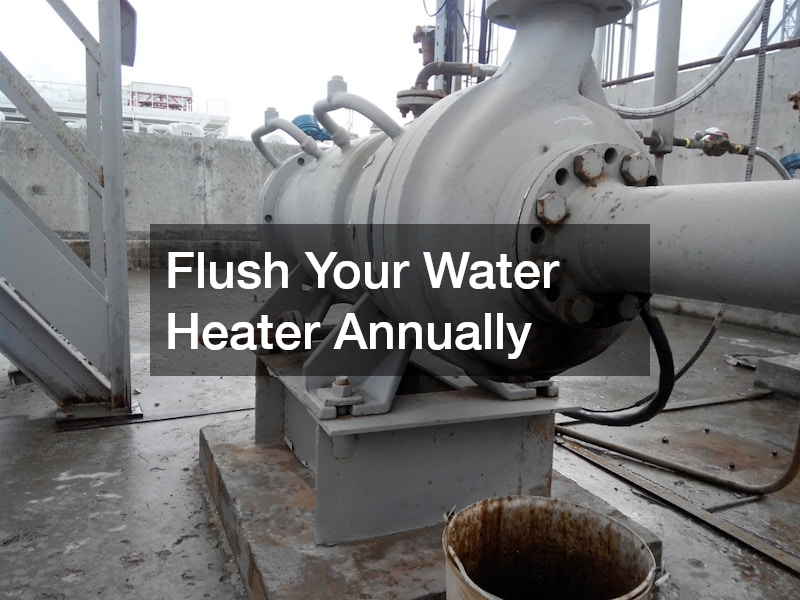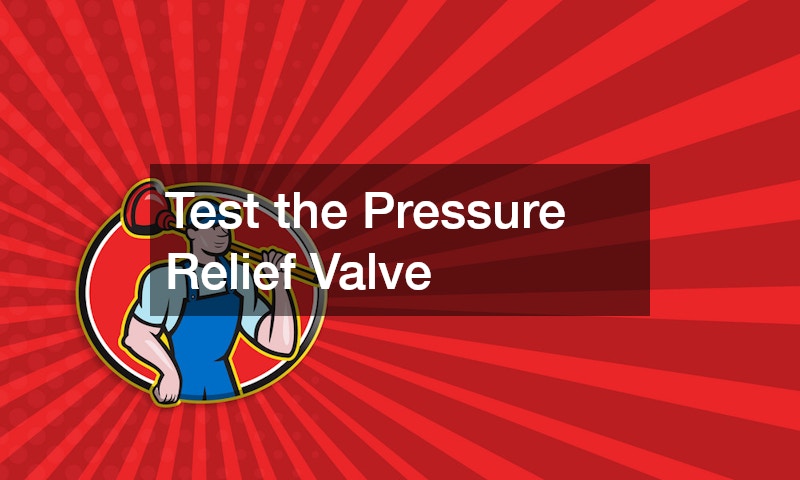Homeowner Care Tips for Your Water Heater
Water heaters are an essential component of any household, providing hot water for showers, baths, dishes, and laundry. To ensure your water heater operates efficiently and effectively, regular maintenance and care are crucial. By following these ten essential tips for water heater care, you can prolong the lifespan of your unit and avoid costly repairs or replacements.
Understand Your Water Heater Type

Before attempting any maintenance or repairs on your water heater, it’s important to understand the type of unit you have. Whether it’s a traditional tank water heater or a tankless water heater, each type requires specific care and maintenance practices. If you’re unsure about your water heater type or how to properly care for it, consult a professional plumbing repair service for guidance.
Homeowner care is essential in ensuring your water heater functions optimally and lasts for years to come. By familiarizing yourself with your unit’s operating manual and recommended maintenance schedule, you can help prevent potential issues and extend its lifespan.
Regularly checking for leaks around your water heater can help you catch any potential problems early on. If you notice any water pooling around the unit, contact local plumber services immediately to assess and fix the issue before it escalates.
Check the Temperature Setting
One simple way to ensure your water heater is working efficiently is to check the temperature setting. The ideal temperature range for hot water is typically between 120-140 degrees Fahrenheit. If the temperature is set too high, it can not only be a safety hazard but also lead to increased energy consumption.
Seeking the assistance of a local plumber to adjust the temperature setting can help you avoid any potential safety risks or energy wastage. Homeowner care includes being proactive in monitoring and adjusting your water heater’s temperature settings to optimize its performance and efficiency.
In addition to checking the temperature setting on your water heater, it’s also important to inspect the pressure relief valve regularly. This valve helps regulate the pressure inside the tank and prevent it from exceeding dangerous levels, reducing the risk of leaks or malfunctions.
Inspect for Leaks Regularly
Even small leaks around your water heater can indicate a larger issue that needs immediate attention. Regularly inspecting your water heater for any signs of leakage can help you address potential problems early on and prevent costly repairs down the line. If you notice any leaks, contact local plumbing services to diagnose and fix the issue promptly.
As part of homeowner care, make it a habit to visually inspect your water heater for leaks at least once a month. Check for any puddles or moisture around the unit, as well as any signs of corrosion or rust on the tank. By staying vigilant, you can catch leaks early and avoid extensive water damage in your home.
In addition to visual inspections, also be attentive to any changes in water quality or temperature. If you notice rust-colored water coming from your taps or experience sudden fluctuations in water temperature, it could be a sign of a leak or other issue with your water heater that requires professional plumbing assistance.
Flush Your Water Heater Annually

Flushing your water heater annually is a crucial maintenance task that helps remove sediment and mineral buildup from the tank. Over time, sediment accumulation can reduce the unit’s efficiency and potentially lead to overheating or damage. By flushing your water heater regularly, you can prolong its lifespan and ensure it continues to operate smoothly.
While some homeowners may choose to perform a DIY flush of their water heater, it’s recommended to enlist the services of professional plumbing technicians for a thorough and effective flush. Professional plumbing services have the expertise and equipment to safely and efficiently flush your water heater, keeping it in optimal working condition.
Homeowner care extends to scheduling annual water heater flushes to prevent potential issues and maintain the unit’s performance. By staying proactive in maintaining your water heater, you can save on energy costs, reduce the risk of malfunctions, and extend the lifespan of your unit.
Check the Anode Rod
The anode rod in your water heater plays a crucial role in preventing corrosion and extending the lifespan of the tank. Over time, the anode rod may deteriorate, making it less effective in protecting the tank from rust and corrosion. Checking the condition of the anode rod regularly and replacing it when necessary can help prolong the life of your water heater.
During professional plumbing inspections or maintenance visits, ask your plumber to inspect the anode rod and recommend a replacement if needed. Homeowner care involves staying informed about the status of your water heater components, including the anode rod, and taking proactive steps to ensure they are functioning optimally.
If you notice any signs of corrosion on the anode rod or suspect it may be nearing the end of its lifespan, contact plumbing contractors for a replacement. By maintaining the anode rod, you can protect your water heater from damage and extend its overall durability.
Insulate Your Water Heater
Insulating your water heater can help improve its energy efficiency by reducing heat loss and lowering your utility bills. By wrapping your water heater in an insulation blanket, you can prevent heat from escaping the tank and ensure that hot water remains hot for longer periods. Insulation also helps reduce the workload on your water heater, extending its lifespan and reducing wear and tear.
Consulting with professional plumbing services for recommendations on the appropriate insulation materials and installation process is key to effectively insulating your water heater. Homeowner care extends to taking steps to improve the energy efficiency of your home appliances, including insulating your water heater for optimal performance.
Regularly checking the insulation on your water heater and ensuring it is in good condition can help maximize its energy-saving benefits. If you notice any signs of wear or damage to the insulation blanket, contact local hvac contractors for a replacement to maintain your water heater’s efficiency.
Test the Pressure Relief Valve

The pressure relief valve on your water heater is a crucial safety feature that prevents the tank from building up excessive pressure. Testing the pressure relief valve periodically to ensure it functions properly is essential for preventing potential explosions or leaks. If you’re unsure how to test the valve, contact a local hvac contractor for assistance.
As part of homeowner care, make it a regular practice to test the pressure relief valve on your water heater to verify it is working correctly. This simple yet vital task can help safeguard your home from the dangers of a malfunctioning pressure relief valve and ensure the safe operation of your water heater.
In the event that the pressure relief valve fails the test or shows signs of damage, contact local emergency plumbers immediately to address the issue. Prompt action can prevent catastrophic failures and protect your home and family from potential harm due to a malfunctioning pressure relief valve.
Schedule Regular Professional Inspections
While homeowner care can help you maintain your water heater’s day-to-day operations, scheduling regular professional inspections is essential for identifying potential issues early and ensuring the unit is in optimal condition. Qualified plumbing technicians can perform thorough inspections, detect hidden problems, and recommend necessary repairs or maintenance to keep your water heater functioning seamlessly.
By partnering with local emergency plumbers for regular inspections, you can benefit from expert insights and guidance on how to best care for your water heater. These professionals can provide valuable recommendations on maintenance tasks, repairs, or upgrades that can improve the efficiency and longevity of your unit.
Homeowner responsibilities include proactively scheduling annual or bi-annual inspections with professional plumbing services to assess the health and performance of your water heater. By investing in regular inspections, you can catch potential issues early, save on repair costs, and ensure your water heater continues to meet your hot water needs reliably.
Monitor Energy Bills for Anomalies
Monitoring your energy bills for any sudden spikes or anomalies can be an early indicator of a water heater issue. If you notice a significant increase in your energy costs without a corresponding change in usage, it could signal that your water heater is working inefficiently or has a hidden problem. In such cases, contacting water heater services for a thorough inspection is recommended.
As part of homeowner care, keeping track of your energy bills and noting any unusual patterns can help you detect potential problems with your water heater. By staying vigilant and proactive, you can address energy inefficiencies promptly and prevent further damage or costly repairs down the line.
If you suspect that your water heater is contributing to high energy bills or suspect it may be malfunctioning, contact water heater repair specialists to diagnose the issue. Professional repairs can help restore your water heater’s efficiency and reduce your energy costs, saving you money in the long run.
Know When to Replace Your Water Heater
Despite proper maintenance and care, there may come a time when your water heater needs replacement. Signs such as frequent leaks, inconsistent hot water supply, or old age (typically over 10-15 years) may indicate that it’s time to invest in a new unit. Consulting with water heater repair experts can help you determine the best course of action for your specific situation.
Homeowner care involves being aware of the signs that your water heater is nearing the end of its lifespan and taking proactive steps to replace it before it fails completely. By staying informed about the condition of your water heater and scheduling regular maintenance, you can extend its lifespan and plan for a timely replacement when necessary.
If you’re considering replacing your water heater, explore the option of upgrading to a smart water heater for improved energy efficiency and convenience. Smart water heaters offer advanced features such as remote monitoring, energy-saving modes, and predictive maintenance alerts, making them a worthwhile investment for homeowners looking to upgrade their hot water system.
Consider Upgrading to a Smart Water Heater

Upgrading to a smart water heater can offer numerous benefits for homeowners seeking improved energy efficiency and convenience. Smart water heaters come equipped with advanced features such as Wi-Fi connectivity, mobile apps for remote control, and energy-saving modes that help optimize performance and reduce utility costs. By investing in a smart water heater, you can enjoy greater control over your hot water system and maximize its efficiency.
Additionally, many smart water heaters provide real-time usage data, allowing homeowners to track their hot water consumption and identify patterns. This information can empower you to make informed decisions about your usage, leading to further energy savings. Some models even send alerts for maintenance issues or when the water temperature fluctuates, helping you proactively address potential problems before they escalate. Ultimately, the combination of convenience, efficiency, and proactive monitoring makes smart water heaters a worthwhile investment for any homeowner looking to enhance their home’s functionality while reducing energy expenses.
Moreover, smart water heaters can contribute to a more sustainable lifestyle by reducing energy waste. Many models allow homeowners to set schedules based on peak usage times, ensuring that hot water is only heated when needed. This not only cuts down on energy consumption but also helps lower your carbon footprint. As a result, by upgrading to a smart water heater, you’re not only investing in your home’s efficiency and comfort but also playing a part in promoting environmental sustainability. This added layer of responsibility can be particularly appealing to homeowners who are conscious about their environmental impact and seek ways to make their homes greener.
Taking care of your water heater is essential for ensuring its longevity, efficiency, and reliability. By following the ten essential tips outlined in this guide, you can effectively maintain your water heater and prevent unnecessary repairs or replacements. From understanding your water heater type to monitoring energy bills and knowing when to replace your unit, homeowner care plays a critical role in preserving the functionality of your hot water system. Remember to schedule regular professional inspections, address leaks promptly, and consider upgrading to a smart water heater for enhanced performance. With proper care and attention, your water heater can continue to provide hot water for your household needs for years to come.
